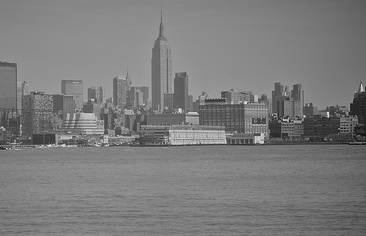 NAVTEQ— the digital map, traffic and location data company— released a study today via its Traffic.com site and service naming New York City and its freeways as the most congested and traffic-delayed in North America.
NAVTEQ— the digital map, traffic and location data company— released a study today via its Traffic.com site and service naming New York City and its freeways as the most congested and traffic-delayed in North America.
Freeways in Montreal, Philadelphia, Los Angeles, Boston and Toronto cracked the top ten on this dubious list as well. Following New York on NAVTEQ Traffic.com’s ranking of cities with the worst rush hour are: Washington D.C., San Francisco, Los Angeles, Philadelphia, Chicago, Dallas-Ft. Worth, Atlanta, Houston and Denver.
This Thanksgiving holiday (Wednesday, November 24th to Sunday, November 28th) the American Automobile Association (AAA) and IHS Global Insight predict that the number of Americans traveling will increase 11.4 percent versus 2009, with approximately 42.2 million travelers overall and 39.7 million of them reaching their destination by vehicle.
Vehicles account for at least 25 percent of air-polluting emissions domestically, the U.S. Environmental Protection Agency reports. Numerous studies have linked traffic and related emissions to health problems that range from childhood asthma to higher risk of sudden heart attacks for people living within 300 to 500 meters from a highway or major road most effected by traffic. According to the Health Effects Institute in Boston, 30-45% of people in large North American cities live within such zones.
Stop and start driving causes vehicles from diesel buses to typical family cars to emit more particles including black carbon and volatile organic compounds, scientists at Queensland University of Technology in Australia found. That’s one reason air quality declines around traffic-congested areas.
In New York, areas with the greatest traffic density suffer three times the concentration of the pollutant nitric oxide, and twice the concentration of nitrogen dioxide, compared to areas with the lowest traffic density, according to the 2010 New York City Community Air Survey.
Drivers who avoid the most congested routes, roads with lots of stop signs and traffic lights, and who drive during off-peak hours hopefully with carpoolers can curb their impact on air quality, and the overall amount of fuel or energy they consume while traveling.
From the NAVTEQ Traffic.com study:
-
Freeways with the Slowest Typical Rush Hour
1. New York City – Brooklyn Battery TUNL NB
2. New York City – Washington BRG EB
3. Montreal – AUT-15EB
4. Philadelphia – US-202 SB
5. Montreal – RTE-138 WB
6. New York City – Washington BRG WB
7. Los Angeles – 1-10EB
8. Boston – US-1 NB
9. Dallas – TX-366 EB
10. Toronto – Don Valley PKWY NB
Cities with the Worst Rush Hours
1. New York
2. Washington D.C.
3. San Francisco
4. Los Angeles
5. Philadelphia
6. Chicago
7. Dallas – Ft. Worth
8. Atlanta
9. Houston
10. Denver
Image via Ryan Vaarsi